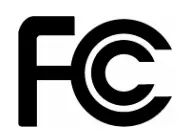
FCC Certification Consulting
Introduction to FCC Certification
FCC stands for Federal Communications Commission, which is the U.S. government agency responsible for regULating interstate and international communications. It was established in 1934 under the Communications Act. The FCC ensures the safety of radio, telephone, satellite, and cable communications by overseeing radio broadcasts, television, telecommunications, and related technologies. The FCC operates in all 50 U.S. states, the District of Columbia, and U.S. territories, with its Office of Engineering and Technology handling technical support and device approvals.
fcc certification mark

Benefits of FCC Certification
The Federal Communications Commission (FCC) manages the import and use of radio frequency devices, including computers, fax machines, electronic devices, radio receivers and transmitters, remote-controlled toys, telephones, personal computers, and other products that may pose safety risks. These products must undergo testing and approval by government-authorized laboratories according to FCC technical standards before they can be exported to the U.S. Importers and customs agents must declare that each radio frequency device complies with fcc standards, known as an fcc license. Understanding U.S. market access rules will help Chinese products expand into the U.S. market.
Scope of fcc certified Products
1. Personal computers and peripherals (monitors, printers, keyboards, power adapters, mice, scanners, interface cards, electronic game consoles, power supplies, UPS, fax machines, modems, answering machines, switches, etc.)
2. Home appliances and power tools (refrigerators, electric irons, food blenders, electric kettles, electronic sterilizers, microwave ovens, air conditioners, vacuum cleaners, electric toys, rice cookers, electric shavers, hair clippers, blow dryers, bread toasters, massagers, battery chargers, stoves, washing machines, induction cookers, food processors, small motors, etc.)
3. Audio and video products (radios, CRT/LED/LCD televisions, set-top boxes, DVD/VCD players, MP3 players, home audio systems, etc.)
4. Lighting products (LED lights, LED screens, LED drivers, ballasts, energy-saving lights, stage lights, dimmers, converters, stage lighting systems, fluorescent tube ballasts, tube lights, discharge lamps, fixed and portable lighting, recessed lighting, etc.)
5. Wireless products (Bluetooth, remote-controlled toys, wireless switches, wireless thermometers, wireless mice and keyboards, wireless monitors & cameras, wireless microphones, FM transmitters, and various wireless devices)
6. Toys (metal, plastic, wood, bamboo, fabric, paper toys, and electronic toys)
7. Security products (alarms, security devices, access control systems, monitors, and cameras)
8. Industrial machinery (punching machines, woodworking machines, packaging machinery, plastic machinery, metal cutting machines, food processing machinery, printing machinery, die-casting machines, mechanical control systems, amusement rides, hydraulic machinery, etc.)
FCC Certification Compliance
1. The responsible party (usually the manufacturer or importer) tests the product at an FCC-approved testing facility to ensure it meets relevant technical standards. They must retain the test reports, and the FCC may require samples or test data for review. Compliance declarations are required for consumer devices such as home computers and peripherals, broadcasting receivers, and industrial and medical equipment.
2. The responsible party must label the device with an FCC ID. The FCC reviews the submitted samples or photos and test data, and if they meet FCC standards, an fcc id is granted. Certified devices include low-power transmitters like cordless phones, remote controls, wireless toys, security alarm systems, and devices emitting intentional radio frequency energy under Part 15.
3. The responsible party must mark the device with the FCC ID. If a device is eligible for multiple types of certifications, the responsible party can choose the appropriate one.
fcc certification process
- FRN Application: First, apply for an FRN (FCC Registration Number) to fill out additional forms. If the applicant is applying for an FCC ID for the first time, they will need to apply for a permanent Grantee Code. During the approval process, the applicant should submit the device for testing. Once all materials are ready and the test report is complete, the FCC should approve the Grantee Code.
- FCC Form 731 and Form 159: After receiving the Grantee Code, the applicant uses this code, the test report, and required materials to complete FCC Forms 731 and 159 online. The FCC processes the application after receiving Form 159 and the payment. The average processing time is 60 days. Once approved, the FCC will issue the Original Grant, allowing the applicant to sell or export the product.
FCC ID Certification Application Methods
There are generally two ways to apply for FCC ID certification:
1. Direct submission to U.S. TCB laboratories: This method is costly and time-consuming (not recommended).
2. Submit to an FCC-accredited laboratory for testing: Prepare materials and testing reports, then submit them to a TCB for certification. This is the most commonly used method.
Required Materials
- fcc id label location
- User manual
- Schematic diagram
- Block diagram
- Theory of operation
- Test report
- External photos
- Internal photos
- Test setup photos
How to Query FCC ID
1. FCC ID query website: Visit http://transition.fcc.gov/oet/ea/fccid to search.
2. FCC ID query format: Enter the first 3 or 5 characters of the FCC ID in the "Grantee Code" field, and the remaining characters in the "Product Code" field. If the FCC ID is unknown, you can search by the applicant's company name in the "Applicant Name" field.
JJR, based in China, is your fcc certification testing consultant. If you have any questions, feel free to contact us. We can help you save 30% on FCC certification costs.
Email:hello@jjrlab.com
Write your message here and send it to us
 How Do You Get a CE Mark
How Do You Get a CE Mark
 IEC 60529 IP Rating Ingress Protection Standard
IEC 60529 IP Rating Ingress Protection Standard
 IEC 60601-1 Medical Electrical Equipment Basic Saf
IEC 60601-1 Medical Electrical Equipment Basic Saf
 European Authorized Representative Medical Devices
European Authorized Representative Medical Devices
 EU Waste Electrical and Electronic Equipment Direc
EU Waste Electrical and Electronic Equipment Direc
 How to Get CE Approval
How to Get CE Approval
 Accelerated Ageing Test
Accelerated Ageing Test
 IP Ingress Protection Testing
IP Ingress Protection Testing
Leave us a message
24-hour online customer service at any time to respond, so that you worry!




